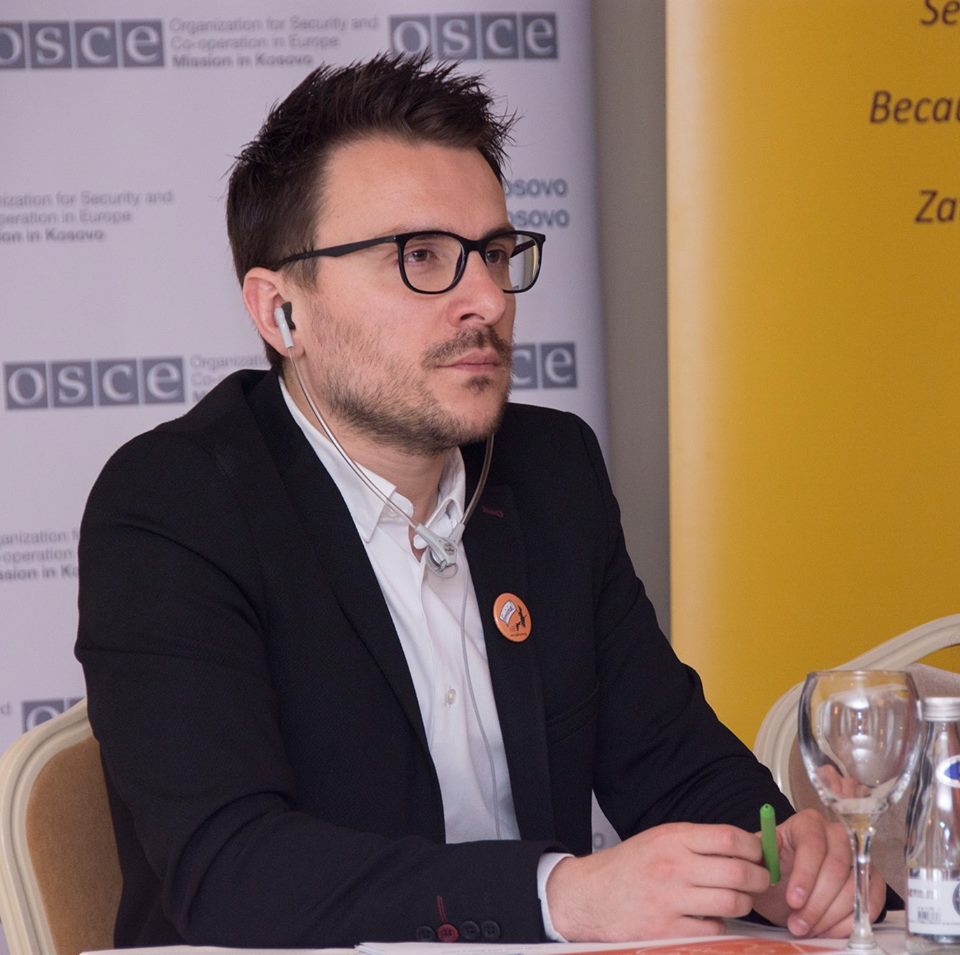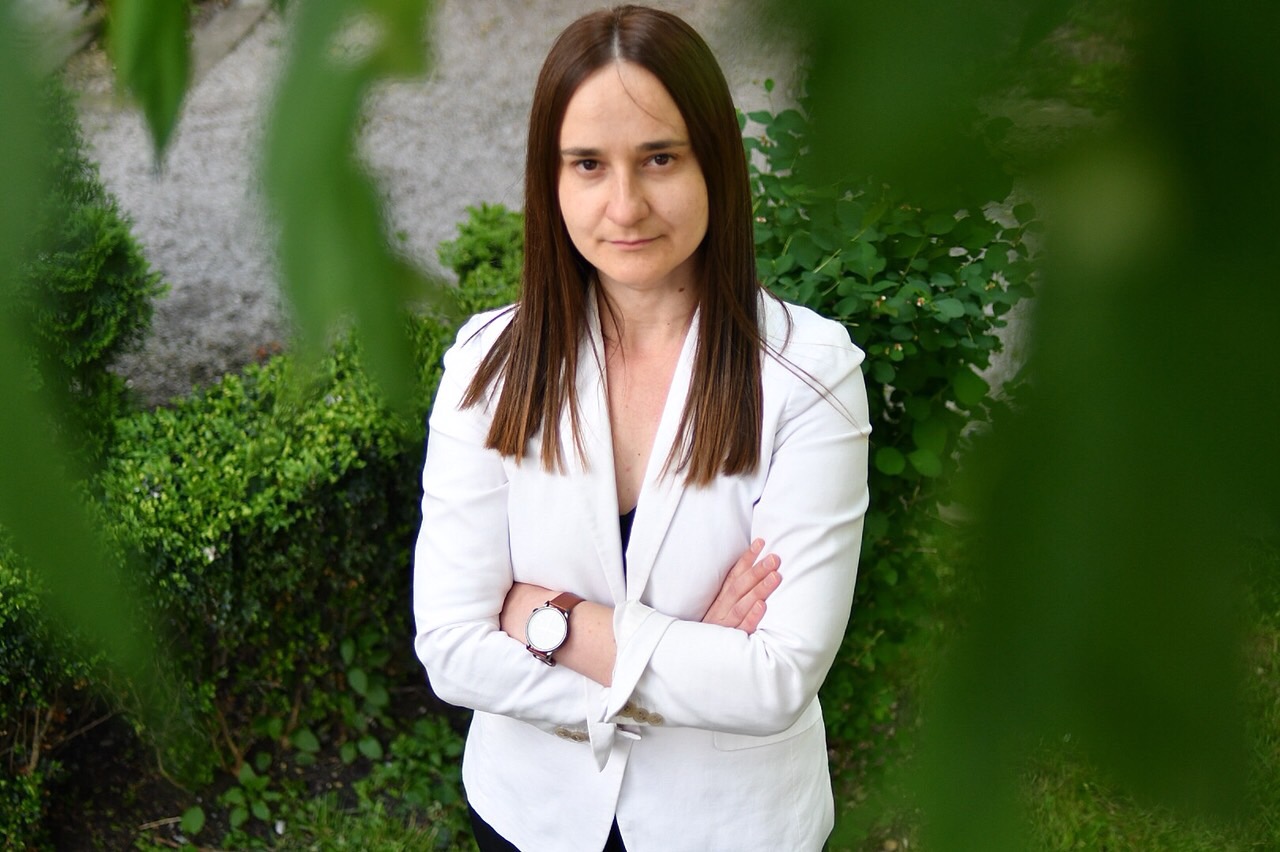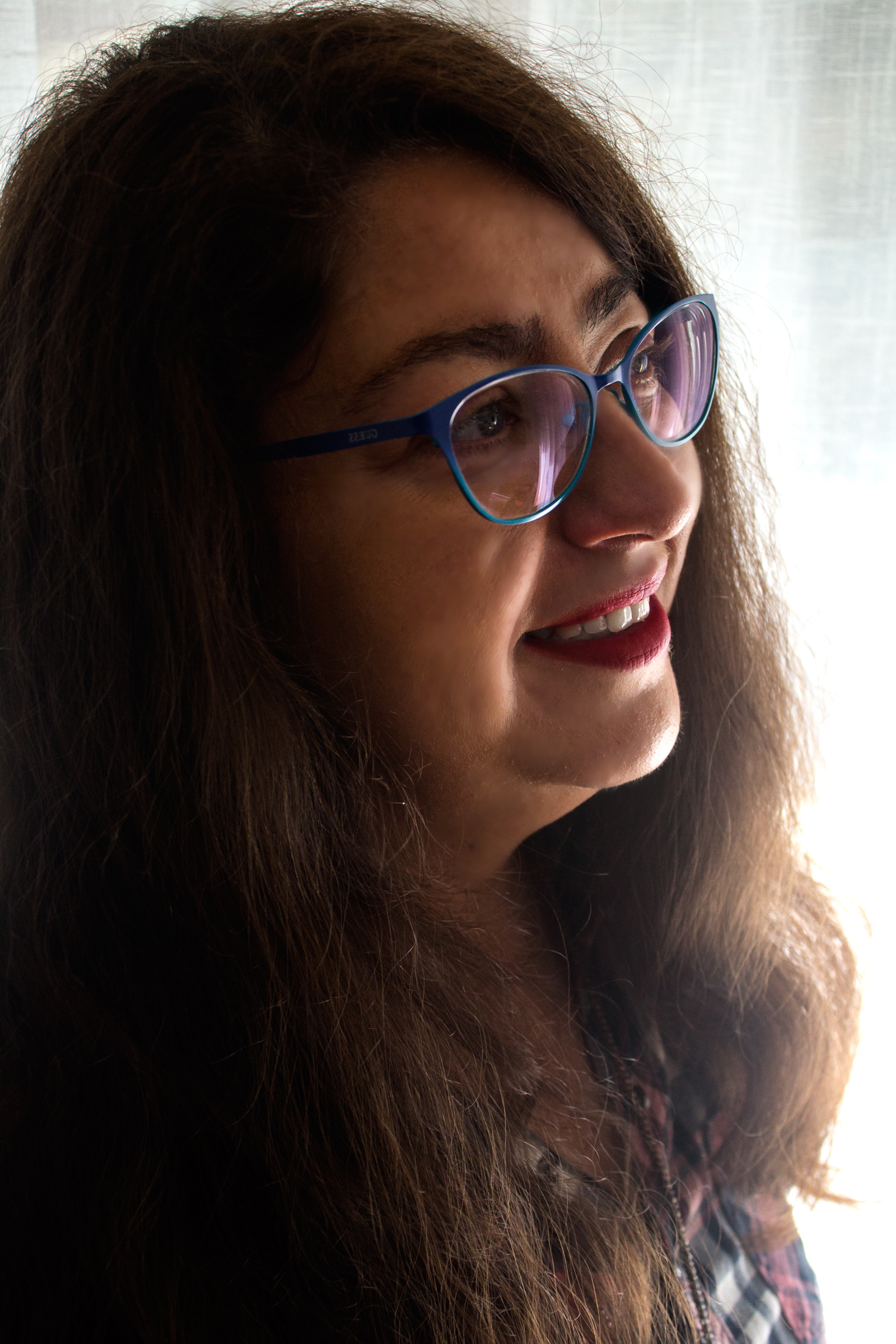#SOC interview: Gender equality for students of social sciences in BiH
The analysis conducted by the Sarajevo Open Centre among the public colleges of social sciences and humanities in Bosnia and Herzegovina showed that through the curriculum at the majority of the universities, gender equality is in some cases studied through teaching units in some subjects, while in other faculties, gender equality is in no way involved in the teaching process.
One of the founders and the first executive director of Sarajevo Open Centre – Saša Gavrić – states that SOC quickly realized after their founding that without the inclusion of issues like gender equality, LGBTI rights and protection of human rights overall in the university curriculums, makes it impossible to educate professionals with focus on these themes and without these professionals that focuses on these themes, there is no adequate change in institutions.

That is, a few years ago, the idea of making a textbook about gender equality for students of social sciences in Bosnia and Herzegovina originated. The book would sort of be an introduction for all students that would like to get introduced to gender equality. In cooperation with the Faculty of Law at the University of Sarajevo, that idea was finally realized. With Emina Bošnjak, executive director of Sarajevo Open Centre, the editor Amila Ždralović, professor at the Faculty of Law and the editor Saša Gavrić, expert on gender equality, we talked about the reason of the creation of the textbook about gender studies and the inclusion of gender equality perspective in higher education in Bosnia and Herzegovina.
What was personally your motivation as an editor of the textbook?
Saša: As an editor of more than ten different scientific essay publications in the area of political science, with this textbook I wanted to gather a Bosnian-Herzegovinian team that would create a real Bosnian-Herzegovinian scientific product. The criticism and the using will show if we have succeeded in this, but I am already proud that this introduction to gender studies is a pioneering project.
Amila: Feminism is always a big part of my personal motivation in what I do. Along with this motivation, I need to add that I, as a sociologist, see education as a place of reproduction of the sociocultural forms of patriarchy as well as a place of its de(con)struction considering that education can take the role of developing critical tendencies of individuals. Therefore, this editorial work with Saša Gavrić has, in a way, encompassed my various interests, combining activist and scientific endeavors.
To whom is this textbook meant for?
Saša: As the summary says, this textbook is intended for students studying social sciences, with focus on future lawyers, politicians and sociologists. Of course, the textbook can be used by anyone whos interests are politics, laws and institutions of gender equality in one of the most complex countries in Europe.
Given that gender equality is a broad theme, what were the criteria for selecting the topics for the textbooks and the author?
Amila: In the very beginning, we thought about a collection of work that would be an introduction to gender studies for students, but also for everyone that would like to learn about the themes of gender studies. Already through the first conversations, we realized that it would, nevertheless, be better (considering the variety of the themes) to think about the students at the faculties of social sciences. That also effected the selection of the themes and narrowed down the broad area. Certainly, the further selection of topics and the profiling of the first concept of the proceedings were influenced by the existing research, the experience of dealing with these topics in the teaching process in other settings, and the existing Bosnian-Herzegovinian concepts of university education. We tried to get a collection that would fulfill the humble stated purpose of the introduction to gender studies, but also leave space (primarily through the recommendations of further readings given at each text) for the themes to further expand or to problematize further. To produce a collection of various works from various authors as well as an introduction to gender studies, have its own disadvantages as well as advantages (as there is in any other publication). For instance, it can impair the consistency of the text, but also provide with different perspectives.
Saša: Before choosing the authors we were going with the idea of choosing the best, regardless wether they worked or not in Bosnia and Herzegovina. As a result, in this textbook we have the work of academic staff but also experts from praxis. I am particularly pleased of the fact that we have a large number of men and that gender equality is not just a “women’s” issue.
An analysis of the study of gender equality at the faculties in BiH showed that very little is said about most of the faculties. What do you think are the reasons?

Emina: The analysis was focused on public faculties of social sciences, and it showed if inclusion of perspectives of gender equality and/or feminism happened, and it showed that it never or very rarely did happen during primary education. Gender equality always place a role that is seen as ancillary, as something extra, only for those who have more understanding for certain topics. I honestly believe that this could not be further from the truth. Feminist or gender studies play a key role in studying how, for example, law or economics in practice can have significantly different effects for half of the population. Future experts in the areas of social sciences will set new standards: changing the ways in the legal logic, the judiciary system and the ones who hold it firmly treat victims of gender-based violence, how to adequately value domestic and unpaid work, how to contribute to decision-making through addressing general social and economic issues, which will offer better solutions for men and women. Also, we will need professionals within the system that will acknowledge that there are people that don’t identify themselves as a man or a woman and know that that is okay.
Saša: The federalization of higher education within the already small Bosnia and Herzegovina does not encourage coordination and development of initiatives that will result in the inclusion of a gender perspective in all processes in higher education. The concept of gender mainstreaming has unfortunately not yet come to life and as a consequence we have Bosnian-Herzegovinian universities who’s scientific and research work remains gender insensitive. We have recognized this issue as a problem and on this occasion, we will also organize a scientific conference on the topic of birth/gender mainstreaming of Bosnian-Herzegovinian universities in the fall.
Amila: There are certainly several reasons and certainly several answers to this question. However, I assume that one of the key reasons is the misconception about the neutrality of various topics in relations to feminist debates. Themes, more often than not, but also view entire disciplines in the social sciences and humanities as gender neutral and as having nothing to do with feminists and feminist debates. Misconceptions about neutrality are conveyed as unquestionable knowledge.
Why is it important that feminism and gender equality is being studied at the universities? Is this enough or should primary and secondary levels of education be included?
Emina: If there was a serious gender or feminist perspective in primary and secondary schools, we would already have had generations of people where most would think and act outside the patterns of gender stereotypes. I believe that many more girls would think about the future in construction and IT without having to deal with their parents’ reassurances that they would feel uncomfortable at the construction site or in the office dominated by men that creates video games, and that more boys would want to learn about how they can be better parents. The inclusion of feminist perspectives in higher education is probably a prerequisite for designing and organizing a qualitative primary education that will include studies about equality. From a perspective of gender equality, the problem is not in tradition, but it is a problem when traditional roles are molded by women and men and placed or (forcibly) returned to its old roles. And society has changed drastically. In order to reach a world where gender is really irrelevant in the context of social justice, we will have to go through the process of educ, and think through pedagogy, economics, law, and political science to profoundly change the assumptions and models embedded in (primary) education, work and decision making.
Saša: International legal frameworks, such as the Istanbul Convention and the CEDAW Convention, clearly recognize the need to change in the school curriculum and in practice in order to terminate and eliminate gender stereotypes and prejudices, and to support the education of young people, men and women, that through education will be gender aware and ready to tackle inequalities. Gender equality as such must be integrated into all education processes, plans and practices, from kindergarten through post-doctoral programs in Bosnian-Herzegovinian universities. Only this way will we get future experts, who will know how to recognize the need, but also know how to work on their own to eliminate inequalities on a daily basis.
Amila: I believe that we need tooling in topics at all levels of education . However, I must emphasize that I do not think that we will solve the problems by introducing new school subjects at all levels of education (especially at primary and secondary level). Introducing a new subject does no guarantee that gender issues will be dealt with in a serious and quality way. Certainly different views and attitudes are possible, and it is therefore necessary to seriously discuss the needs and the best way to incorporate these topics into existing education programs. However, I believe that the new subject is only an additional burden for the students, and is not a guarantee that any change will happen (moreover, I believe it will not). I prefer to integrate these topics into existing content and to tool existing content at primary and secondary level. Certain programs of professional development of teachers are already being implemented, which are also legally prescribed. Quality vocational training should also include education in gender studies in order to sensitize teachers. This would also make assumptions about tooling topics in teaching practice, which can be seen as a direct intervention in textbook content.

The textbook was created through the corporation between the Sarajevo Open Centre and the Faculty of Law. Have SOC continued their collaboration with the public universities? How much are the universities open for corporation with non-governmental organizations?
Emina: In its beginnings, Sarajevo Open Centre established cooperation with pedagogical institutes and ministries of education, science, culture and sport in connection with the subject of cultures of religions. Three cycles of seminars for professors of humanities groups were held during 2007 and 2008, and the book “Culture of Religions”, authored by Ranka Katalinski and Zuhra Kalauzović, was published as a part of the project in 2009. In 2011, a teacher’s manual was published. Through programs such as the Žarana Papić Feminist School, the Equality Academy, as well as numerous researches, we have collaborated with different academics, however, this is the first joint initiative where we formally work with a public university or college.
Saša: Autonomous professors in my opinion take the central role at the universities. Many of them have been collaborators for several years with civil society organizations. However, this cooperation is based on personal contacts and less on structured cooperation. I am afraid that Bosnian-Herzegovinian universities do not make full use of the existing networks and capacities of some of the central civil society organizations. By jointly publishing this introduction to gender studies, the Sarajevo Open Centre and the Faculty of Law at the University of Sarajevo (UNSA) demonstrate that join initiatives are nevertheless possible.
Amila: Already, the work on this collection has brought together, among others, persons working at Bosnian-Herzegovinian universities. And this is just one part of those who come from academia and study feminist topics and do gender studies. The number of people dealing with these topics is significantly higher today than before. The number of people dealing with these topics is significantly higher today than before. All this is one of the preconditions for opening a university. In the current circumstances, and based on my own experiences, I see no obstacles to integrating feminist topics into the teaching process. Nevertheless, partial experiences and sporadic observations are not sufficient for general conclusions. I suspect that universities are open enough to talk about ways to improve not only the curriculum but also research.
How much impact would inclusion of feminist and gender equality subjects on students?
Amila: It would remove us from the point of status quo. The colleges educate those who will work in secondary and primary schools, educate future lawyers, social workers, journalists etc. Gender education is necessary for them to adequately do their jobs. Change has to start from something, and one that would happen in colleges, especially at the colleges of social sciences, could be reflected in diverse fields. I am persistently talking about the possibilities, not the necessary consequences of the conditions. The question is how we will introduce themes as gender studies into education.
The publication “Rodna ravnopravnost. Teorija, pravo, politike” (English “Gender Equality. Theory, Law, Policies”) consists of five pieces and eighteen papers that focus on different aspects of gender equality, authored by: Milena Karapetrović, Damir Banović, Nedim Kulenović, Adrijana Hanušić Bećirović, Midhat Izmirlija, Adnan Kadribašić, Zlatiborka Popov Momčinović, Belov Buljubašić, Sanela Bašić, Valida Repovac Nikšić, Natalija Petrić, Zorana Antonijević, Jelena Milinović and Dženita Hrelja Hasečić.
The textbook on gender equality for students of social sciences in Bosnia and Herzegovina will be published in September, while a formal promotion will be held at a conference scheduled for late fall.
genderequalityinterview
 Gender Equality: Theory, Law, Policies. Introduction to gender studies for students of social sciences in BiH
Gender Equality: Theory, Law, Policies. Introduction to gender studies for students of social sciences in BiH